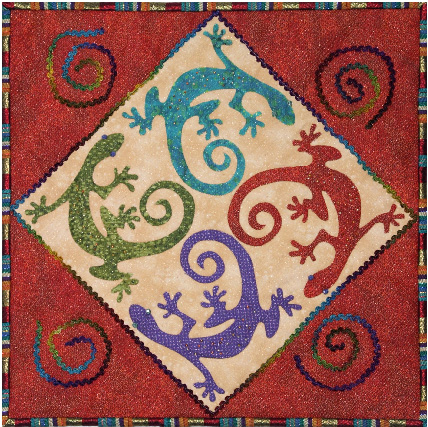 5 Arguments In Defense of Fanfiction
5 Arguments In Defense of Fanfiction
I always thought that I should dedicate my first book to JK Rowling. Her entire Harry Potter world was so compelling, so all-consuming, that her seven novels weren’t enough. Some of us cared too much about Harry, Ron, Hermione, and the rest to let them go. What would happen when they grew up? Would Harry hook up with Ginny or Hermione—or Lavender, Tonks, or Luna? Did Harry think about sex, and who would he have it with? Would he become an Auror, a professional Quidditch player, or the Minister of Magic? What about the minor characters? And don’t even get me started on Snape, one of the deepest, most enigmatic and darkly compelling characters ever written.
Since JKRowling didn’t give us the answers to these questions, we had to provide them ourselves. And of course, it wasn’t just the Harry Potter world that compelled us to take the author’s gifts one step further. In addition to Harry Potter fanfiction, I’ve also written stories of the TV show The Office and in the world of Twilight (I’m a sucker for an angst-ridden Edward, and I’m head over heels in love with Carlisle). Dear friends of mine write in the fandoms of Xena, X-Men, Smallville, Battlestar Galactica, V for Vendetta, Maximum Ride, Percy Jackson, Pride and Prejudice, and even, yes, the Bible.
There are those who don’t approve of the whole fanfiction enterprise. If you want a boy wizard or a self-loathing vampire, they say, why not just create your own and write about him, instead of stealing someone else’s? But fanfiction is good for writers, good for readers, good for creators, and good in general. Here are a few reasons why.
1.
Fanfiction is good for the original authors. Some authors don’t allow it, and most of fandom respects that , but most authors get a huge kick out of fanfiction. JKR, Stephenie Meyer, James Patterson, Garth Nix, and other writers are thrilled and affirmed that their characters live so fully beyond the borders of their books.
2. Fanfiction is good for business. Did you ever go to a Harry Potter midnight book release or film premier? Most of the people there were members of the internet fan community, or fandom. The HP phenomenon wouldn’t have been a fraction of what it was without the fandom, and JKR knew it. You can’t buy this kind of publicity and you don’t have to—fanfic is a jillion dollars worth of free publicity. Publicity sells books, keeps bookstores open, keeps advertisers happy, and generally promotes a healthy economy.
3. Fanfiction is a training ground for writers. There are some objectors who protest that much of fanfiction just isn’t very good. And I can’t argue—some just isn’t. Some of it’s written by middle-schoolers who can barely spell Edward, much less write a deep exploration of his psyche. But fanfic also comes with two systems that the world of original fiction could stand to learn from: the review system and the beta system. Reviews allow for immediate feedback—how many novelists have access to that? And the beta system is a mentoring/editing system that helps new writers (and experienced ones) improve and perfect their stories. I am willing to wager that young or new writers learn more about their own language from their betas than from their English teachers. No offense to hard working English teachers, but who can compete with Harry, Fang, and Edward? New writers hone their craft in fanfiction, and if they go on to original writing, they don’t make those same beginner mistakes.
4. Fanfiction is a doorway to publication. This is controversial, but some fanfiction stories have been so very good, and so very unlike their models (how “Twilight” is an all-human Cullen family, for example?), that they are easily, and successfully, converted to original works and submitted for publication. If Harry is a non-magical cowboy in the Old West, it’s not too hard to just make him a cowboy in the Old West. If you remove Fang’s wings, he’s just a rebellious teenager with an honorable streak and a crush on a tough girl. Every author is inspired by someone, and those who have their roots in fanfiction can make the transition from “someone else owns these characters” to “someone else inspired these characters.”
5. Fanfiction encourages reading and writing. My teenaged daughters are immersed in the world of the Marauders—Harry Potter’s parents and their classmates. They spend their computer time reading Marauders fanfic (rated T/PG-13 or lower—I’m on top of that). They don’t spend their computer time flirting, sexting, watching questionable music videos, sneaking porn, or chatting with dangerous predators. They only get 90 minutes a day online, and they choose to spend it with Lily, James, Sirius, and Remus. In a time when attention spans are declining, some teens and others are reading and writing for entertainment.
I know it’s not universally approved of in the writing community, but I’ve been grateful for fanfic in my life. On top of all the reasons I just listed, it’s also led me to some of my dearest friends, and we’ve had a wonderful time getting to know each other beyond our common literary obsessions. For that reason alone, it would be a good thing. I’d be quite interested to hear others’ experiences or thoughts about fanfic.
Kathy Teel is a freelance writer and editor, and runs a beta service for new writers of original fiction, No Disclaimers Beta Services (www.nodisclaimerbetas.com). She’s also a staff beta for the fanfiction sites Twilighted (www.twilighted.net) and Checkmated (www.checkmated.com) which are Twilight and Harry Potter sites, respectively.
























